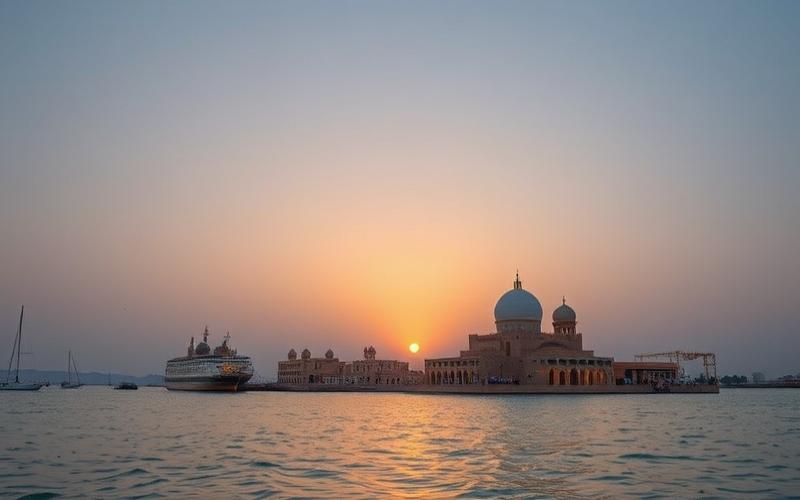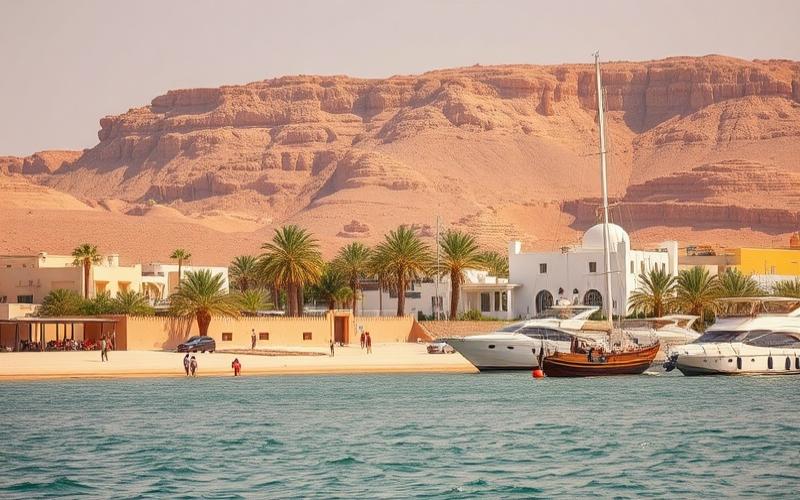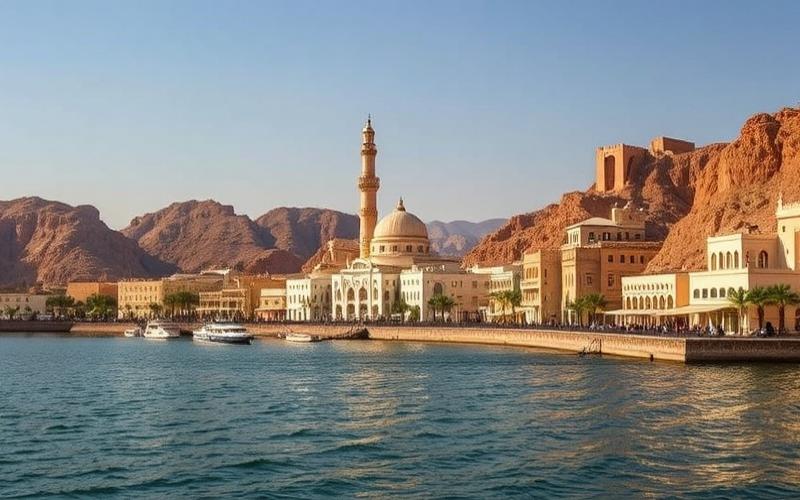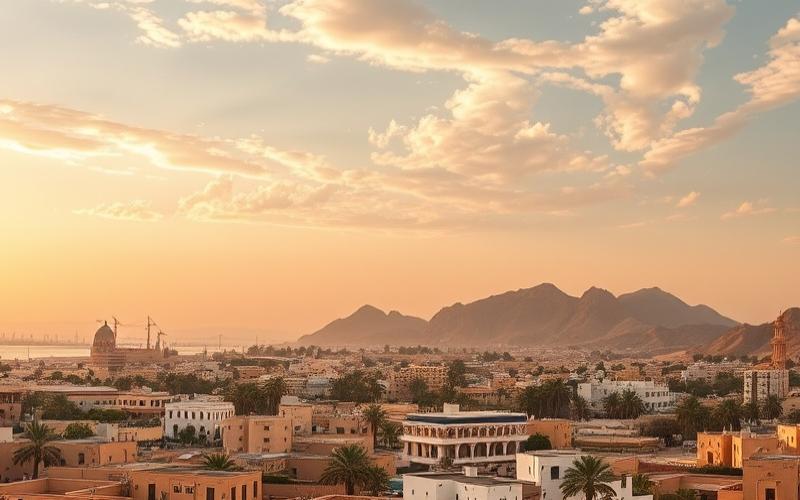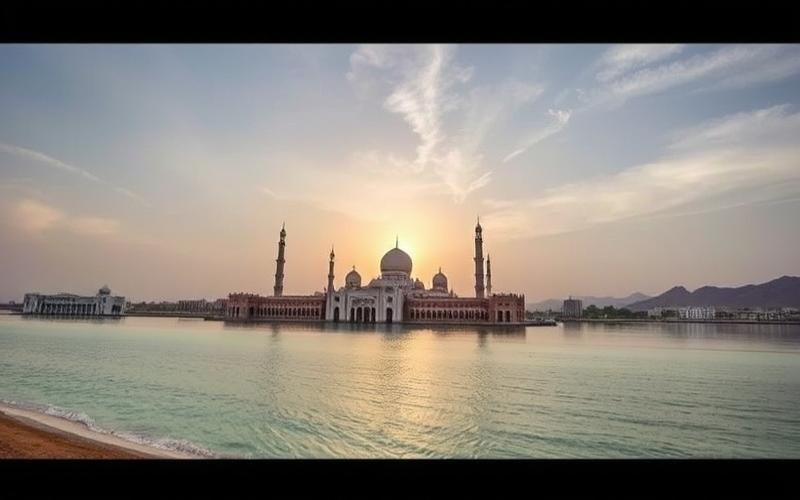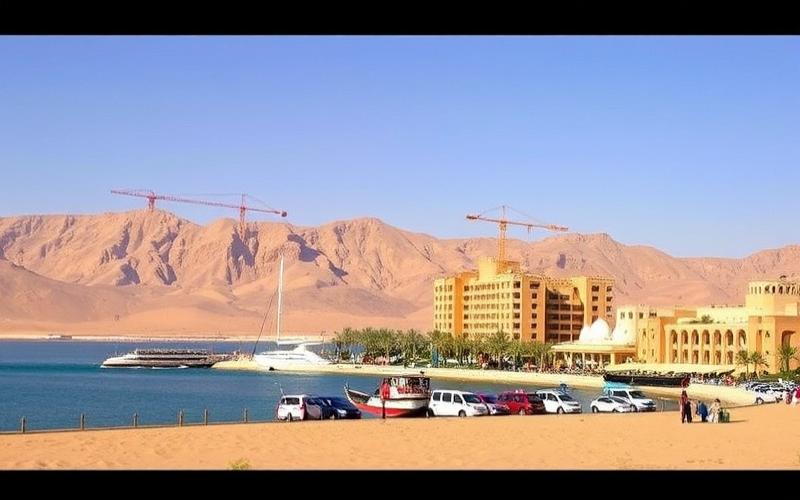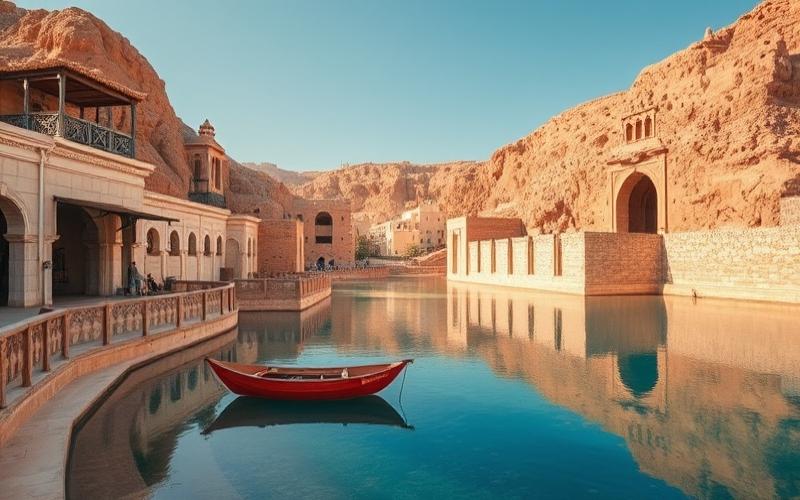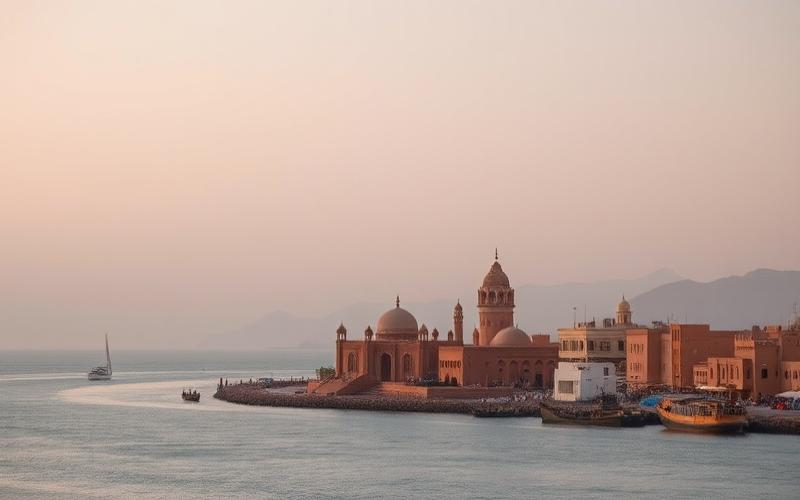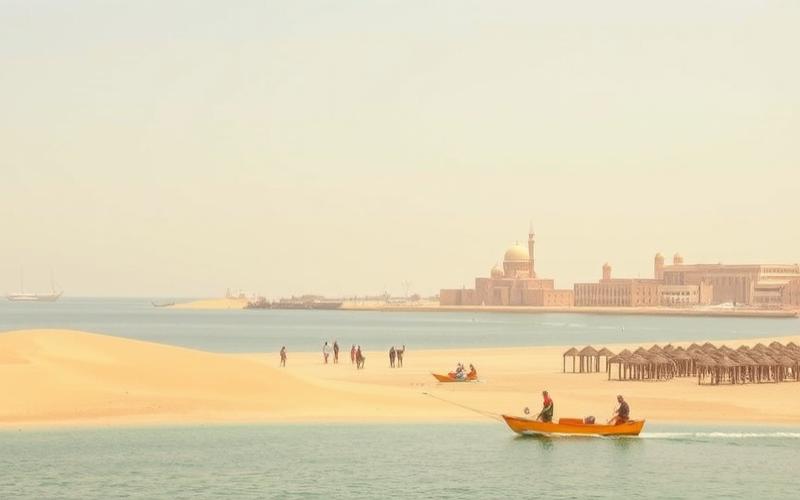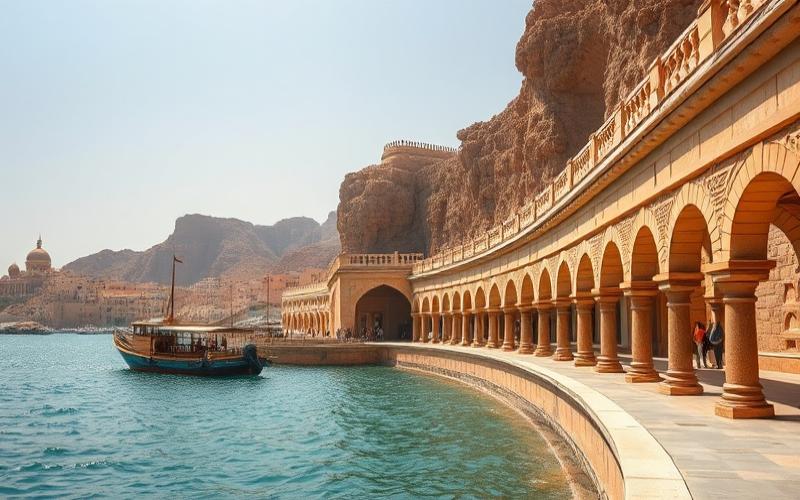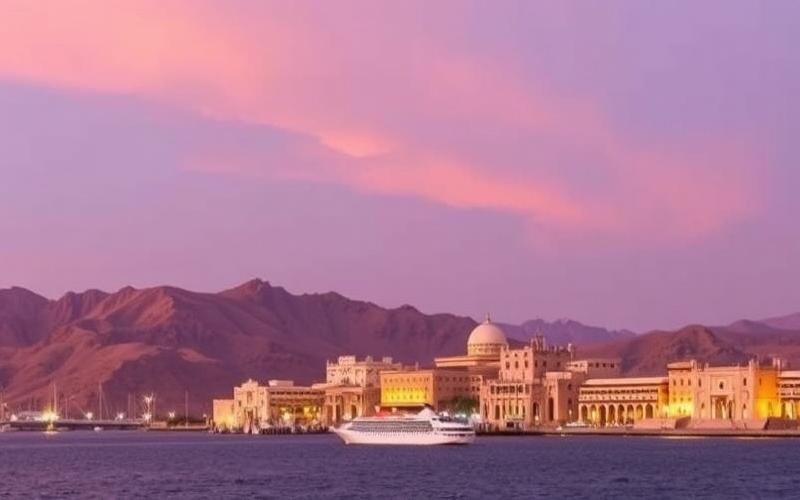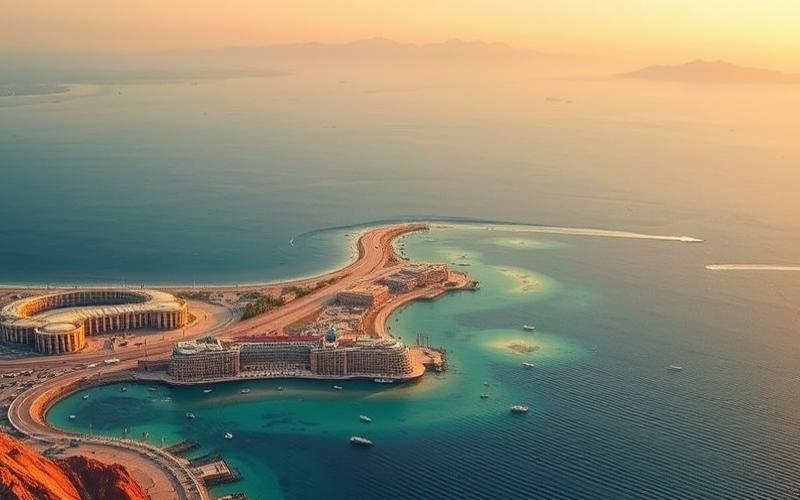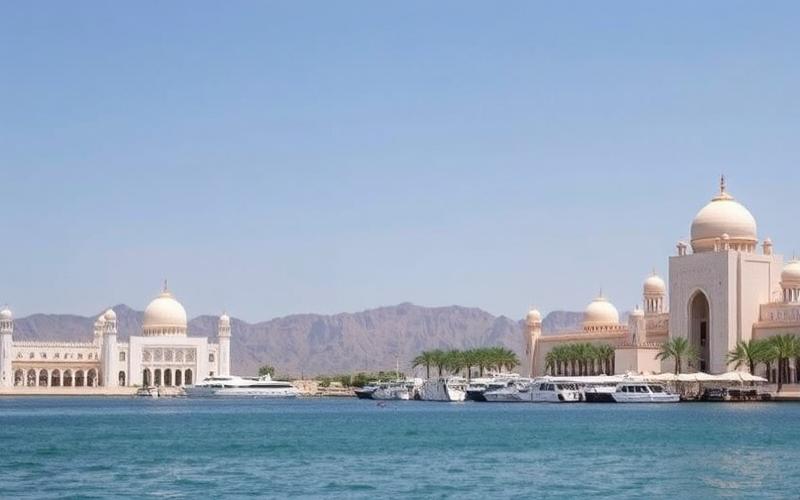
 Published on and written by Cyril Jarnias
Published on and written by Cyril Jarnias
Omani corporate culture presents a fascinating blend of ancient traditions and modernity, reflecting the rapid evolution of this Gulf nation. For any professional looking to work or do business in the Sultanate, understanding the nuances of this culture is essential for integration and success. This article provides a comprehensive overview of key aspects of Omani corporate culture, from fundamental values to employee engagement strategies.
Heritage and Modernity: The Pillars of Omani Corporate Culture
Omani corporate culture rests on a delicate balance between respecting traditions and adopting modern practices. Islamic and Bedouin values continue to strongly influence the business world while adapting to the demands of a globalized economy.
Respect and hierarchy are fundamental values in Omani companies. Professional relationships often carry a sense of formality, particularly toward superiors and elders. This attitude reflects the importance placed on experience and wisdom in Omani culture.
Hospitality and generosity, characteristic traits of Arab culture, also manifest in the professional environment. It’s not uncommon for business meetings to begin with polite exchanges and sharing refreshments, creating a friendly atmosphere conducive to discussions.
Loyalty to the company and colleagues is highly valued. Omanis tend to prioritize long-term relationships, both with their employers and business partners. This approach fosters stability and mutual trust within organizations.
Simultaneously, innovation and adaptability are gaining importance in the Omani economic landscape. The government actively encourages economic diversification and the adoption of new technologies, thereby influencing the practices of both local and international companies operating in the country.
Good to know:
Omani corporate culture combines respect for traditions with openness to modernity. Valuing both aspects in your professional interactions will help you gain the trust of your Omani colleagues and partners.
The Modern “Majlis”: Internal Communication Omani-Style
Communication within Omani companies reflects both the country’s cultural heritage and its adaptation to modern practices. Understanding these nuances is crucial for navigating the local professional environment effectively.
The “majlis” tradition, or assembly, still strongly influences internal communication. Although modernized, this practice translates into a preference for face-to-face exchanges and group meetings to discuss important matters. This approach fosters consensus and strengthens bonds between colleagues.
Indirect communication is often preferred, particularly when conveying criticism or disagreements. Omanis tend to avoid direct confrontation to preserve harmony in professional relationships. Therefore, it’s important to be attentive to subtleties and implicit messages in conversations.
The growing use of communication technologies is gradually transforming practices. Omani companies are increasingly adopting instant messaging tools, online collaboration platforms, and internal social networks to facilitate exchanges, especially in large organizations and international companies.
Multilingualism is a major asset in internal communication. Although Arabic is the official language, English is widely used in business, especially in companies with international activities. The ability to navigate between these two languages is highly appreciated.
Formality in written communication remains important. Emails and internal reports generally follow a more formal format than in many Western countries, reflecting respect for hierarchy and social conventions.
Good to know:
Prioritize in-person exchanges for important discussions and be attentive to non-verbal communication nuances. Adapt your communication style according to the context and your interlocutor to maximize the effectiveness of your interactions.
Between Tradition and Innovation: Omani-Style Leadership
The management style in Omani companies is evolving rapidly, combining traditional approaches with modern leadership practices. This fusion creates a unique work environment that requires flexibility and understanding from both local and international professionals.
Paternalistic leadership remains predominant in many Omani organizations, particularly in family businesses and traditional sectors. This style is characterized by a strong hierarchy, where leaders are perceived as benevolent authority figures, responsible not only for company performance but also for the well-being of their employees.
Collaborative decision-making is gaining ground, influenced by Western management practices and the new generation of Omani leaders. This approach encourages employee participation and values their contributions while maintaining respect for hierarchy.
The importance of personal relationships in management cannot be underestimated. Omani managers place great value on building strong bonds with their teams, often beyond the strict professional framework. This approach fosters employee loyalty and engagement.
Adaptation to international management standards is becoming increasingly common, especially in large companies and multinationals operating in Oman. These organizations adopt more structured performance management, talent development, and leadership practices aligned with global standards.
Time and deadline management may differ from Western expectations. Omani culture places great importance on relationships and flexibility, which can sometimes translate into a more relaxed approach to deadlines. Managers must find a balance between respecting deadlines and adapting to local rhythms.
Good to know:
To succeed as a manager in Oman, cultivate strong relationships with your team while maintaining clear structure. Be open to collaboration while respecting established hierarchies. Your ability to navigate between traditional and modern approaches will be a major asset.
A Professional Melting Pot: Diversity and Inclusion Omani-Style
Diversity and inclusion in Omani companies reflect both the country’s traditional values and its growing openness to the world. Understanding this dynamic is essential for effectively integrating into Oman’s professional landscape.
Omanization, a government policy aimed at increasing the proportion of Omani citizens in the workforce, plays a central role in team composition. This initiative has led to greater generational diversity within companies, with a new generation of qualified Omanis occupying positions at all levels.
Cultural diversity is a reality in many Omani companies, particularly in the oil, gas, and tourism sectors. Multicultural teams are common, bringing together professionals from Oman, other Arab countries, South Asia, and the West. This diversity brings a wealth of experiences and perspectives while requiring careful management of cultural differences.
Women’s inclusion in the workforce is steadily progressing. The Omani government actively encourages women’s participation in the economy, and more Omani women are occupying positions of responsibility in various sectors. However, some fields remain more traditional in their approach to gender equality.
Adaptation to religious needs is an important component of inclusion in Oman. Companies generally respect religious practices, such as prayer breaks and schedule adjustments during Ramadan. This sensitivity often extends to non-Muslim employees, creating an environment of mutual respect.
Managing language differences is a constant challenge in diverse teams. Although English is widely used as a common business language, the ability to navigate between Arabic and English, and possibly other languages, is highly valued.
Good to know:
To thrive in this diverse environment, develop your cultural sensitivity and ability to work effectively in multicultural teams. Be open to learning local cultural nuances while bringing your own unique perspective.
Motivating and Retaining: Engagement Strategies Omani-Style
Omani companies increasingly recognize the importance of employee engagement to maintain their competitiveness and attract top talent. Engagement strategies reflect a unique blend of traditional values and modern approaches.
Training and development are at the heart of engagement strategies in Oman. Many companies invest in continuous training programs, mentoring opportunities, and clearly defined career paths. This approach not only meets Omanization objectives but also the aspirations of the young Omani generation seeking professional advancement.
Recognition and rewards play a crucial role in employee motivation. Omani companies often implement formal and informal recognition systems, ranging from financial bonuses to award ceremonies, and more personal gestures of gratitude from managers.
Work-life balance is gaining importance, particularly among young Omani professionals. Progressive companies are introducing flexible work policies, generous parental leave, and wellness initiatives to meet this growing demand.
Community engagement and social responsibility are powerful levers for employee engagement in Oman. Many companies encourage their employees to participate in charitable initiatives and community projects, thereby aligning company values with those of Omani society.
Creating a positive work environment is a priority for many organizations. This translates into designing modern and comfortable workspaces, organizing social events to strengthen team cohesion, and promoting an open and inclusive corporate culture.
Good to know:
To maximize your engagement and that of your team, be proactive in your professional development and actively participate in company initiatives. Value opportunities to contribute to the community and strengthen bonds with your colleagues beyond the strict professional framework.
Omani corporate culture offers a fascinating blend of age-old traditions and modern practices. To succeed in this unique environment, it’s essential to cultivate a deep understanding of local values while remaining open to innovations and global influences. By adopting a respectful, flexible, and engaged approach, both local and international professionals can not only integrate successfully but also contribute significantly to the growing dynamism of the Omani economic landscape.
Disclaimer: The information provided on this website is for informational purposes only and does not constitute financial, legal, or professional advice. We encourage you to consult qualified experts before making any investment, real estate, or expatriation decisions. Although we strive to maintain up-to-date and accurate information, we do not guarantee the completeness, accuracy, or timeliness of the proposed content. As investment and expatriation involve risks, we disclaim any liability for potential losses or damages arising from the use of this site. Your use of this site confirms your acceptance of these terms and your understanding of the associated risks.


